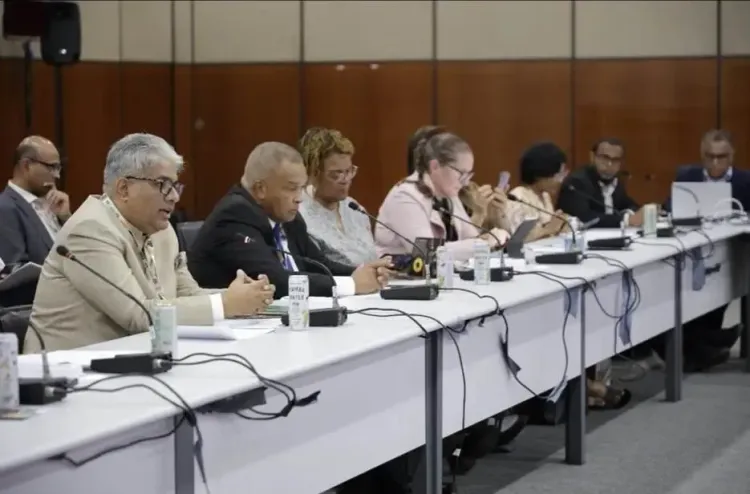How is India Making Significant Progress in Clean and Renewable Energy?

Synopsis
Key Takeaways
- India has achieved over 500 gigawatts of electricity capacity.
- More than half of this capacity is derived from clean energy sources.
- India ranks fourth globally in renewable energy production.
- Grassroots initiatives like the PM Surya Ghar Rooftop Solar Programme are pivotal.
- Innovative projects in Ladakh aim to revolutionize energy storage capabilities.
New Delhi, Nov 20 (NationPress) India has made remarkable progress in the realm of clean and renewable energy, stated Bhupender Yadav, the Union Minister for Environment, Forest and Climate Change.
During his address at the High-Level Ministerial Leadership Session of the International Solar Alliance- Small Island Developing States (ISA SIDS) Platform, which took place alongside the UNFCCC CoP30 in Belem, Brazil, he emphasized India's dedication to aiding SIDS in their journey towards clean energy pathways via ISA.
“Currently, India has surpassed 500 gigawatts of installed electricity capacity, with over half derived from clean energy sources. We have achieved a 50 percent non-fossil energy capacity five years ahead of our NDC target,” Yadav remarked.
He further noted, “India ranks as the fourth largest producer of renewable energy and holds the third position globally in solar energy production.”
Yadav highlighted grassroots initiatives such as the PM Surya Ghar Rooftop Solar Programme, which has been embraced by over 2 million households.
Additionally, he stated, “Solar energy for agriculture marks a new era for our farming community.”
Solar pumps and solarized feeders are enhancing the reliability and dignity of farming by providing assured daytime solar-powered clean energy for all agricultural requirements.
The Minister also pointed out initiatives that are illuminating remote and forested regions through the PM JANMAN scheme, along with India’s significant advancements in energy storage.
“India is developing some of the world’s largest ‘solar and battery’ projects, including a venture in Ladakh that will store enough clean energy to power an entire city,” Yadav explained.
He highlighted that such models can aid SIDS in reducing diesel imports, lowering energy costs, and enhancing climate resilience.
The event was themed ‘Uniting Islands, Inspiring Action – Leadership for Energy Security,’ stressing that SIDS grapple with unique vulnerabilities, including high reliance on imported fossil fuels, climate-induced disruptions, and fragile infrastructure.









